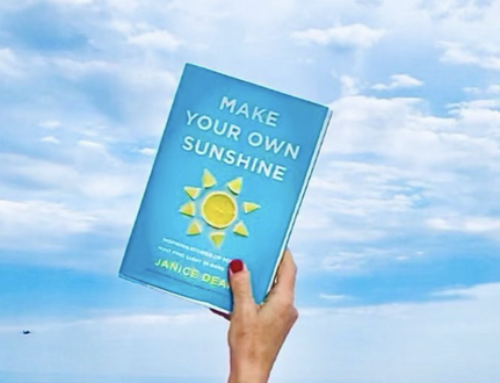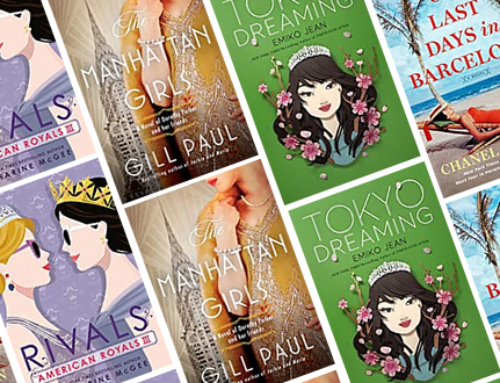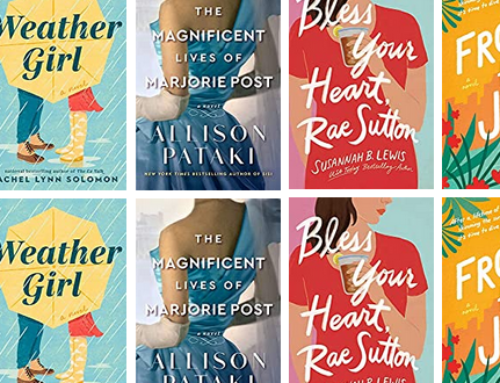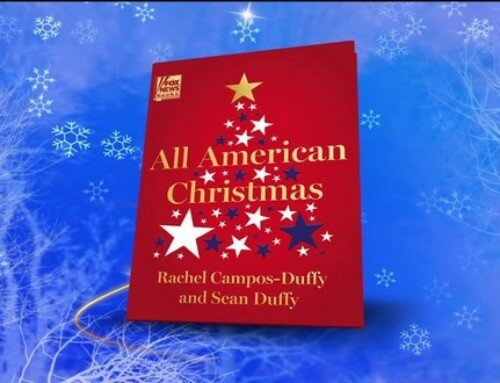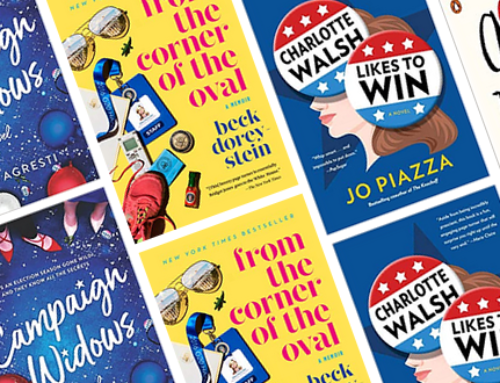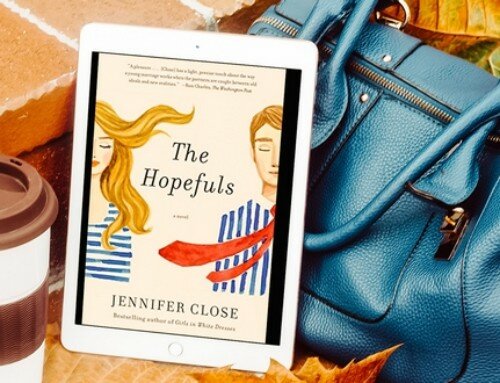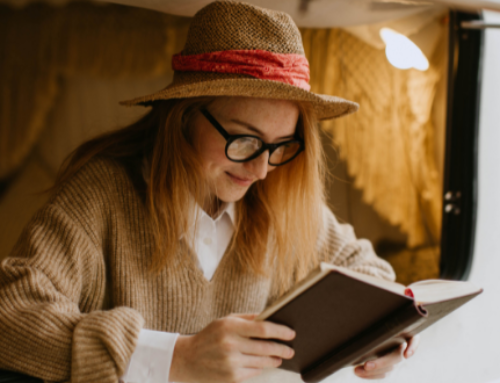As someone who generally likes learning about history, and is a literal Daughter of the American Revolution, I was intrigued by Alexis Coe’s You Never Forget Your First and knew it would be a great book to read and discuss with the ladies of the Future Female Leader Book Club. While George Washington may have been a man, there’s so much we as women can learn from him and the way history has been shaped by him. I also knew that starting off the new year by thinking about our past would prepare us well to think about the future!
As I read the book, I was simply blown away by how Coe was able to condense history in such a readable way and how she engaged with the existing mythology and lore behind Washington and the Revolution in general.
I was so lucky to be able to sit down with Coe over Zoom to talk about her book, what got her interested in history, and what she’s got in store for the future!
*The following answers are transcribed from live conversation, so please excuse grammatical inconsistencies that occur in normal conversation. Filler words have been edited out when possible. Small corrections to clarify flow were included at the discretion of the interviewer. Links have been added to appropriate content throughout to help connect the reader with the conversation’s topics*
What inspired you to write this book? Was it a desire to write about Washington specifically or something greater about our mythology around the Revolution?
I have a love-hate relationship with presidential biographies, which is good because I am a presidential historian. I love to read them, but I’m rarely satisfied with them. I have overall goals that define my career that are becoming clearer as the years go on, but it has always been to focus on the man, to look at what, so far, look at what defined his life, and to hew as closely as possible to that.
I don’t see a whole bunch of that in presidential biographies, not popular ones. I see great micro-histories, which are books written about the women who are adjacent to the president, or slavery or industry, or some specific topic. And yet, those micro-histories usually also include a comprehensive history of the man himself, in like 300 pages.
Washington biographies, in particular, I found the consistency to be odd, from the very beginning. You can usually read three or six presidential biographies, which I was doing at the time because I was hosting a podcast for Audible called Presidents Are People Too, and emerge with an idea of what the general conversation is around the president. You have to figure that these presidents will disagree about a few things, or take a slightly different approach, which they usually do, except in the case of Washington. It’s as if they had pledged to follow an outline when they began, and to meet a certain word count, and to celebrate rather than study. And I mean this down to how they start and end. They all start by saying “He’s too marble to be real but I’m going to break him out” and then they proceed in the exact same manner. And they always end on this heroic note, where he emancipates his enslaved community–which isn’t really true.
With my first book and my second, and the one I will write next, and I imagine everyone after that if I live long enough–the feeling I had with Washington was that I was being complicit in this way of telling history, in this misrepresentation, if I didn’t intervene in it. However, I didn’t realize when I signed up to write the book that there had been literally no women historians who had written Washington books in the past hundred years. I knew there had been two women–a journalist and writer–who had written biographies that weren’t the “big” biographies, but they had written them, but I sort of assumed I would encounter more, or that there were trained historians, but that was not the case. And that is why all the biographies look the same–because they were all written by white men of almost identical background.
Why do you think so few women have authored biographies about the Founding Fathers? Is it still history being a boys club, or are women more interested in different people and eras?
It’s all of the above and the very late entry–because they weren’t allowed in–to history departments. When women historians do history, they have double the pressure and double the impediments, at the very least. They have to reinsert women who were left out of the narrative, who were very important to it, with the help of very few archives and resources. And they also have to–as I am now asserting–have to go back and check men’s work. Now, there aren’t many presidential historians who are women for a variety of reasons.
When women write history, they do tend to want to write around an important man because that is exactly what’s been ignored. I can also assure you that writing presidential biographies comes with a lot of baggage–you enter a boys’ club, they don’t like it when you’re there, they don’t like you playing with their toys, and you have to have a fairly thick skin.
Past that, I’m not quite sure why more women haven’t written more presidential biographies, but I will tell you that without a doubt, the greatest success of my career has been the amount of women that have told me that they are now going to write a presidential biography–and there have been dozens–and I am helping them in various ways.
Have you always been interested in history? Do you remember a turning point for you into the Revolution era? Was there a period you particularly enjoyed growing up?
When I was in college, I was an English major and I was very interested in Irish Literature. If you know anything about Irish literature, you know you have to know Irish history. In order to take those very specialized history classes, I had to take the first five entry level courses, and by the time I reached the end, it was over for me. I double-majored, I still wrote my undergrad thesis on Irish Literature–the topic was gender roles in Ulysses–but after that, I sort of knew it was the only path for me. It was all I wanted to do. And I was good at school, and I thought ‘okay, if life can look somewhat like college, which I took very seriously, and worked on a lot of research projects, then that will make for a very happy existence.”
When I was in grad school, however, I found that the audience was limited and the creativity was as well. And I just happened to live across the street from the Brooklyn Historical Society, so I went over and offered them my services, for free, which of course they accepted, and I loved it. You don’t learn about public history in graduate school, at least not a whole lot and not when I was in it. Through this internship, I learned that there were so many more jobs I could have, but I had been taught I could only be a history professor or a history teacher and that was it. My boss flagged a job opening for the New York Public Library, and I interviewed for the position of research coordinator in the exhibitions department, not really sure that I wanted it, because taking a full time job while you’re in grad school means you’re not in grad school. And if you’re not in grad school, you’re basically giving up on a career in academia, it’s like jumping off a building–there’s no way back up.
So I leapt, and here I am.
Did you discover anything about Washington during the writing process that you found surprising or really funny?
Washington was such a serious man, and yet the names he gave his animals were utterly ridiculous. I have all these notes and charts and lists in the book because that’s what I made for myself during the research process, in order to admittedly enliven him. Because I am taking 18th century documents, and I knew I wanted a different kind of readership–I wanted both women and people of color and people who felt excluded from the genre of presidential history. And I also wanted people who read every book published on George Washington to reconsider a lot of things. And so I named Sweet Lips, and others.
And in that vein, the most shocking thing to me, that I had not read in Washington biographies, was the not-infrequent occurrences in which he was either privy to, approved of, or himself executed an assault on an enslaved person. He’s made out to be, by the Thigh Men of Dad History, a “reticent slave owner” and that was another thing that I found to be very much not true. While they talk about his evolution, and he sometimes talked about an evolution in his thinking in his letters, he acted, in his ledgers and his diaries and his hand–when he slapped an enslaved man who was not able to move an entire log by himself–in a very different manner.
And so it’s a matter of “don’t tell me what you’re doing show me what you’re doing.” And if we look at his final act, the Thigh Men and Mount Vernon, say that he emancipated his slaves outright. Outright means right away, without conditions. He only did that for one man–hundreds of people did not gain their freedom that day.
Why do you think people are so reticent to talk about Washington’s owning of enslaved people? How can we encourage people to explore the reality of history without them worrying that we’re going to “undo” their greatness? How do we engage people to talk about the hard parts of history–like Washington owning slaves and Jefferson fathering children with an enslaved woman, etc?
I think it’s a personal decision as to whether or not you want to consider a president, a founder ,whomever, a role model. But that’s not why we study George Washington. We study him because he is historically significant, that’s why he is in our textbooks, that’s why the name of the capital is Washington, etc, and many other things that can’t be cancelled.
I get emails where people are–and when we had events, questions, to my face–where people are really bending over backwards to try and paint him to be a “good slaveholder.” There’s no such thing. If you owned people, you were not a “good” slaveholder, that’s an inhumane thing to do.
Washington, more than anyone else, represents the founding of our country. If he is “bad”—so a slaveholder–then we are “bad–and that is not something that we want to think of ourselves as being. However, if you compare us to other countries that have been around for thousands of years more, like the UK, you see they have no problem going on the negative parts of their histories. We all know quite a bit about Princess Diana, and Henry VIII, and various people throughout history who have unflattering names and are known for murderous acts of genocide.
People are reticent to separate the man from the country, and they are defensive about what that means to them. And it also makes them uncomfortable. If it’s in the archives, it has to be told. The things that I’ve told you about Washington as a slave owner then have to be told. If that makes you uncomfortable, that is a personal issue, just like making him a role model, and it doesn’t make you bad,it doesn’t make you good. It’s not a verdict on your character, or the quality of the person, or the institution that make up our democracy.
It is unfortunate that very few black people feel comfortable visiting plantations not because of what happened there but what happens now–which is a very skewed history that makes white people comfortable. You can take a tour of Mount Vernon and not hear more than about slavery than the existence of it. That doesn’t happen at Monticello.
You talk a fair bit in this book about the women in Washington’s life—including his mother and his wife. What do you think we lose in perspective by not looking at the important role women played in the lives of these important men? What inspired you to really explore that facet of the Washington Women?
Like many women, I consider us to be fully-formed humans. We have desires of our own, interests, and other experiences, and I take that belief into my research. Male biographers have exhibited very little curiosity about the history of women. They don’t seem to have read any of the books on motherhood at the time, and yet they do not hesitate to declare that Mary Washington was one of the worst mothers alive at the time. They also don’t look in the archives when it comes to these women, because if you think about it, they have a lot to cover, and they are very interested in these big boxes–the Revolution, every big battle (even if he wasn’t there), whatever it was. They tend to cite each other in the citations so they’re not actually doing the research, or you know, maybe, they pull up the letter on Founders Online, which the Library of Congress runs in order to give the public access to the founding papers, you can check their work. And they look for the one line, and then they can see “okay, I did the research.”
But had they, say, entered the archives, they would have realized that Mary Washington–Washington’s mother–was not, as Ron Chernow wrote, illiterate, because we have letters to and from her. We have her books. They weren’t novels, and the letters weren’t well written, and I think that was Chernow’s problem. He saw someone like Martha,who had education and access to literature, as someone he would like to focus on in that way–albeit in a very one-dimensional way–and someone like Mary as uninteresting, thwarting, and he used a lot of inappropriate words, words I would never apply to anyone I researched. He called her “crusty”–that’s very odd to me, and hostile.
So, unfortunately, I think it comes down to that–there has been no interest in women, but when I write about someone I don’t want to write about him in terms of everyone you know who’s famous around him, I wanna know who was actually important to him. Who he spoke with, who he grappled with. I also think it’s really important to remember that reading one letter on one day is very different than reading one letter on another day. And if we were all judged by the worst letter we wrote our mothers, I don’t think anyone would think that a single daughter on earth had a good relationship with her mother. And that’s basically what happened–lack of interest, laziness, inability to see women as significant on their own, and a desire to perpetuate this “great man” history by covering all the “important” events.
If you had to recommend one book, besides your own, to someone who wanted to become a historian or write about history, what would you recommend?
There is a phrase that is frequently misattributed to Eleanor Roosevelt that “well behaved history seldom make history” and it actually is a line by a Harvard professor, who is still alive, named Laurel Thatcher Urlich. And she has written many great books, but in particular a book with that tell–Well Behaved Women Seldom Make History–it was published by Knopf in 2007, and I feel like it’s a great overview of a lot of the things we’ve been talking about.
I talk a lot about Mary Washington in the book, but it’s not a book about Mary Washington, so if you are interested in what it was like to be the mother of the first president, solely from her experience, I highly recommend The Widow Washington by Martha Saxton. It was published right before my work, and I wasn’t able to read a draft of it, but the historian and I struck up a little friendship, and we corresponded and we spoke. She was the only woman nominated this year for the Washington Prize among all white nominees.
If you had to pick a Founding Lady or mother to write about, who would you pick and why? My DAR chapter is about to read a book on First Lady Louisa Adams.
I would certainly recommend Louisa’s book on Louisa.
If I were to write a book on a first lady, I would not choose someone like Sarah Polk, who surreptitiously traded slaves from the White House, and was generally awful, but was very good at her job. So there’s worth in studying her–but I don’t want to spend years with her. I would choose someone like Edith Wilson–who played a large role in her husband’s presidency; Lady BIrd Johnson, who to me is just an enigma, no matter how much is written on her; and finally, this might seem like an obvious choice, or even like a hack choice, but Jackie. Because she’s fascinating and she really transformed, she really had so much power over what we conceptualize as Camelot, and she was a fascinating woman, and one of the youngest first ladies who was a first wife. There are lots of reasons, but I think I would completely dive into her and not be able to finish until her archives are fully unsealed, which they are not.
What do you like to read in your free time? What are you reading now?
What’s free time? I try to listen to novels when I take walks because it makes me a better and happier human, and it makes me, I think, a better writer. Too many historians leave fiction behind, or have no interest in it, because they are so married to the facts, and that’s really silly to me. The best work of fiction I read this year was definitely Such a Fun Age by Kiley Reid. I loved it. I took very long walks as a result–too long.
I am currently reading a book that I intend to blurb–so it’s not that exciting. There’s another that I’m reading that might be better for women–also to blurb. I also intend to blurb, if I’m not too late, Emily Midorikawa’s new book, Out of the Shadows, which will be published in May 2021, about Victorian women and their search for a public voice. I’ve read her previous work and she’s a really fun historian. And the other book I’m reading to blurb, and then hopefully I’m done blurbing for the year, is John Grinspan’s The Age of Acrimony: How Americans Fought to Fix Their Democracy. And the reason I decided to blurb this was that I opened up a random page—I get a lot of requests and it’s hard to balance between people I know and people I don’t and people I like and people who I really want to endorse. I opened up this random page and I read this sentence, ‘Washington’s bed bugs grew fat on American democracy” and I was like “yeah, I’m sold.” The rest of the paragraph was very good.
Future Female Leaders is a participant in the Amazon Services LLC Associates Program, an affiliate advertising program designed to provide a means for us to earn fees by linking to Amazon.com and affiliated sites.



